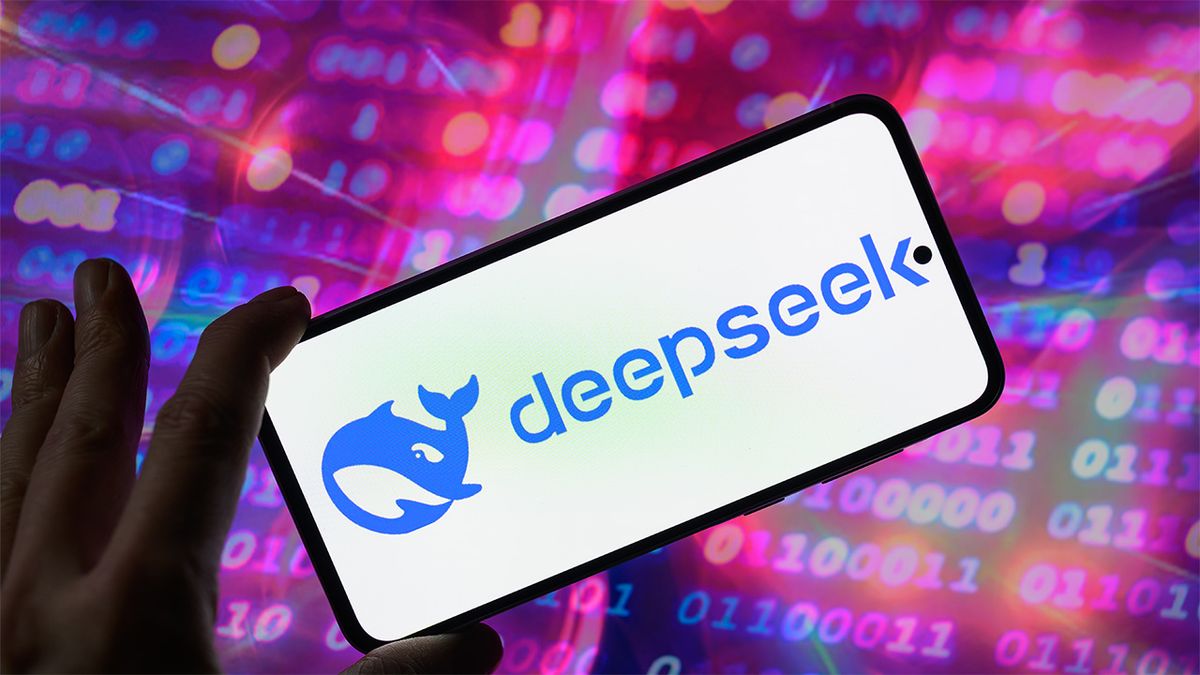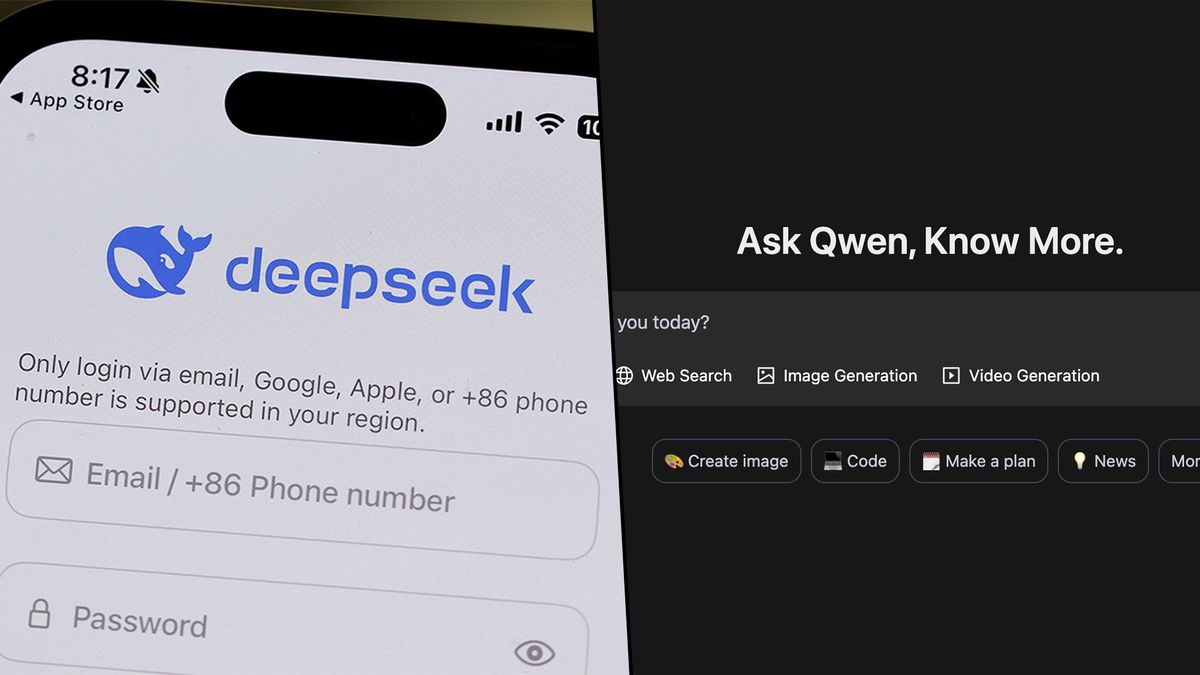ORIGINAL LINK: https://theconversation.com/openai-says-deepseek-inappropriately-copied-chatgpt-but-its-facing-copyright-claims-too-248863


Here is a detailed summary of the most important AI-related advancements, policy updates, and societal implications as of today:
Criticism of Superhuman AI Aspirations:
Leading AI researcher Michael Jordan from UC Berkeley criticized the pursuit of artificial general intelligence (AGI) as "nonsense," arguing that current AI systems are far from achieving human-like understanding. Speaking at a Paris conference ahead of next week's global AI summit, Jordan emphasized that today’s AI models excel at solving specific problems but lack the contextual awareness needed for general intelligence. He likened AI to a new engineering field, better suited for targeted applications like healthcare and transportation rather than solving all human problems1.
AI in Scientific Research:
Google released a new policy framework aimed at accelerating scientific discovery through AI. The framework highlights how AI can dramatically speed up research processes in fields like biology, climate science, and materials engineering. Tools like AlphaFold are already transforming protein research, with over 2.5 million scientists accessing its database globally11.
EU AI Act Implementation:
The EU's landmark AI Act began enforcing its first set of rules on February 2, banning high-risk applications such as real-time biometric surveillance and social scoring. Companies deploying AI in Europe must now ensure compliance with transparency and employee training requirements. This regulatory framework represents one of the most comprehensive approaches to governing AI globally15.
Trump Administration's Deregulatory Push:
President Trump’s executive order continues to reshape U.S. AI policy by emphasizing innovation over regulation. The administration has directed federal agencies to revise or rescind prior policies that may hinder technological growth, aiming to solidify America’s global leadership in AI development49.
Palantir Soars Amid AI Demand:
Palantir's stock surged by 24% following strong earnings driven by its AI-powered analytics platform. The company reported robust demand for its tools across government and enterprise sectors, underscoring the growing business value of applied AI solutions6.
Meta’s $65 Billion Investment in AI:
Meta announced plans to invest $65 billion into AI development throughout 2025, including building a major data center in Louisiana to support its Llama large language model. This move highlights the increasing competition among tech giants to dominate the generative AI space3.
AI's Role in Social Media Harms:
Minnesota Attorney General Keith Ellison released a report detailing how social media algorithms powered by AI exacerbate mental health issues among young people. The report calls for stricter oversight of platforms deploying recommendation systems that amplify harmful content10.
Ethical Concerns Over AGI Hype:
Michael Jordan’s remarks on AGI reflect broader concerns about the ethical implications of overhyping superhuman AI capabilities. Critics argue that such narratives distract from practical applications while fueling public fear and unrealistic expectations1.
AI Accelerating Discovery:
Google's new initiatives underscore how AI is transforming scientific research by enabling faster experimentation and broader participation across disciplines. For example, tools like AlphaFold are helping researchers solve complex biological problems at unprecedented speeds11.
Debate Over Responsible Innovation:
As global leaders prepare for next week's Artificial Intelligence Action Summit in Paris, discussions are intensifying around balancing innovation with safeguards against misuse. Google's updated "Frontier Safety Framework" emphasizes the need for collaborative governance to ensure that advancements benefit society without exacerbating inequalities or risks115.
Today's developments highlight both the transformative potential and the challenges associated with artificial intelligence. From groundbreaking applications in science and business to heated debates over AGI aspirations and regulatory frameworks, the global community is grappling with how best to harness this technology responsibly while mitigating its risks. As policymakers, researchers, and businesses converge at upcoming summits, the focus will likely remain on aligning innovation with societal values for sustainable progress.
SOURCE: https://www.perplexity.ai/search/provide-a-detailed-summary-of-7YoeiE1gTCWFOAjgyOCBjw#4


Here is a detailed summary of today’s most notable AI advancements, policy updates, and societal implications:
1. Technology Advancements
Neuralink's Brain-Computer Interface Progress:
Neuralink demonstrated a robotic arm controlled by a brain implant, showcasing advancements in assistive robotics for individuals with disabilities. This marks a step forward in brain-machine interface technology, with potential applications in mobility and communication restoration8.
DeepSeek's Energy-Efficient Model:
DeepSeek's AI model continues to gain attention for its cost-effective and energy-efficient approach, using half the compute resources of GPT-4. Experts highlight its potential for more accessible AI applications without reliance on cloud infrastructure7.
2. Policy Changes
Trump's AI Executive Order:
President Trump issued an executive order emphasizing U.S. leadership in AI by removing regulatory barriers and prioritizing innovation over prior safety-focused policies. It mandates the development of an AI Action Plan within 180 days and reestablishes the President's Council of Advisors on Science and Technology to guide AI governance13.
EU AI Act Enforcement:
The EU implemented its ban on "prohibited systems," such as social scoring and real-time biometric identification for law enforcement. New guidelines were also issued to prevent misuse of AI by employers and websites, including bans on emotion tracking and manipulative practices59.
3. Business Impacts
Google Updates AI Policies:
Google removed its commitment not to develop AI for weapons or surveillance, signaling a shift in its ethical stance to align with competitive pressures in defense and security applications11.
Microsoft Expands AI Models:
Microsoft is diversifying its enterprise AI offerings by integrating internal models like Phi-4 alongside OpenAI technologies, aiming to reduce costs while enhancing capabilities for tools like 365 Copilot5.
4. Societal Implications
AI Ethics Concerns:
The EU’s new guidelines address growing concerns about AI misuse in workplaces and online platforms, aiming to protect fundamental rights and prevent manipulative practices9. Meanwhile, Trump's deregulatory approach raises questions about balancing innovation with ethical oversight13.
Cybersecurity Risks from "Agentic" AI:
Emerging "agentic" AI systems could automate cyberattacks, including ransomware, posing new challenges for cybersecurity experts. These systems may increase the sophistication of threats while reducing the need for human intervention in malicious activities4.
5. Defense and Security
AI in Military Strategy:
The U.S. Marine Corps announced plans to integrate autonomous systems and AI-driven software into aviation strategies to enhance survivability in combat zones. This reflects the growing role of AI in defense modernization efforts8.
Conclusion
Today’s developments highlight the accelerating integration of AI into critical sectors like healthcare, defense, and business operations. While innovations like Neuralink's brain-computer interface demonstrate transformative potential, shifts in policy—such as Trump’s deregulatory approach and Google’s ethical pivot—underscore the need for robust global guidelines to manage risks associated with rapid adoption.
Source: https://www.perplexity.ai/search/provide-a-detailed-summary-of-7YoeiE1gTCWFOAjgyOCBjw#3


Today's AI landscape is marked by major announcements, regulatory shifts, and ongoing global competition. Below is a comprehensive summary of the most significant developments across technology, policy, business, and societal impacts.